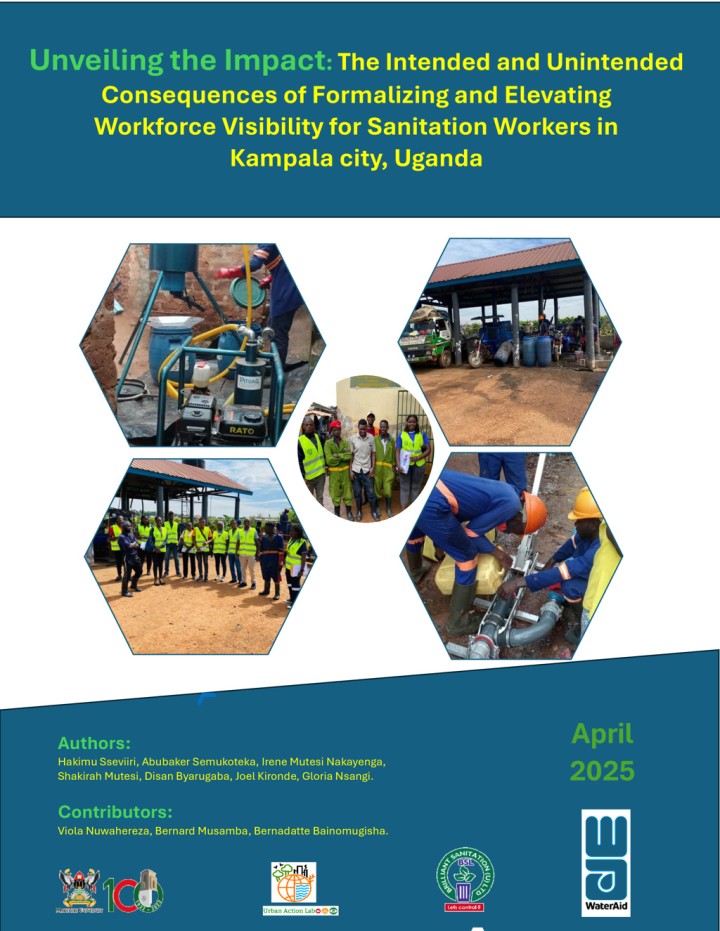Unveiling the Impact: The Intended and Unintended Consequences of Formalizing and Elevating Workforce Visibility for Sanitation Workers in Kampala city, Uganda Hakimu Sseviiri; Abubaker Semukoteka; Irene Mutesi Nakayenga; Shakirah Mutesi; Disan Byarugaba; Joel Kironde; Gloria Nsangi (2025)
Sanitation services are pivotal not only for enhancing public health but also for fostering the productivity of urban systems, particularly as cities continue to expand. Amidst efforts by public, private, and civil society actors to engage the sanitation sector through decentralized and small-scale service provision models, significant challenges related to workforce welfare, legitimacy, and adequate financing persist, underscoring the need to recognize and support the often-overlooked sanitation workers who play a crucial role in achieving
sustainable sanitation for all. Informed by the interests of sanitation workers orgnisations in Kampala, this study sought out to unravel the intended and unintended consequences of sanitation workers formalization and visibility enrichment in Kampala city, Uganda.
The research employed an explorative and participatory approach, utilizing both qualitative and quantitative methods to assess the implications of formalizing and enhancing the visibility of the sanitation workforce in Kampala. The key aspects considered include; the current operational environment, challenges experienced, socio-economic, financial, health, safety, networking and occupational welfare and associated interventions to elevate, recognize and formalize the sanitation workforce.
Bibliographic information
Hakimu Sseviiri; Abubaker Semukoteka; Irene Mutesi Nakayenga; Shakirah Mutesi; Disan Byarugaba; Joel Kironde; Gloria Nsangi (2025). Unveiling the Impact: The Intended and Unintended Consequences of Formalizing and Elevating Workforce Visibility for Sanitation Workers in Kampala city, Uganda The Urban Action and Innovations Lab (UAL)
Filter / Tags
Downloads
Unveiling the Impact: The Intended and Unintended Consequences of Formalizing and Elevating Workforce Visibility for Sanitation Workers in Kampala city, Uganda
Type: application/pdf
Size: 1.55 MB

